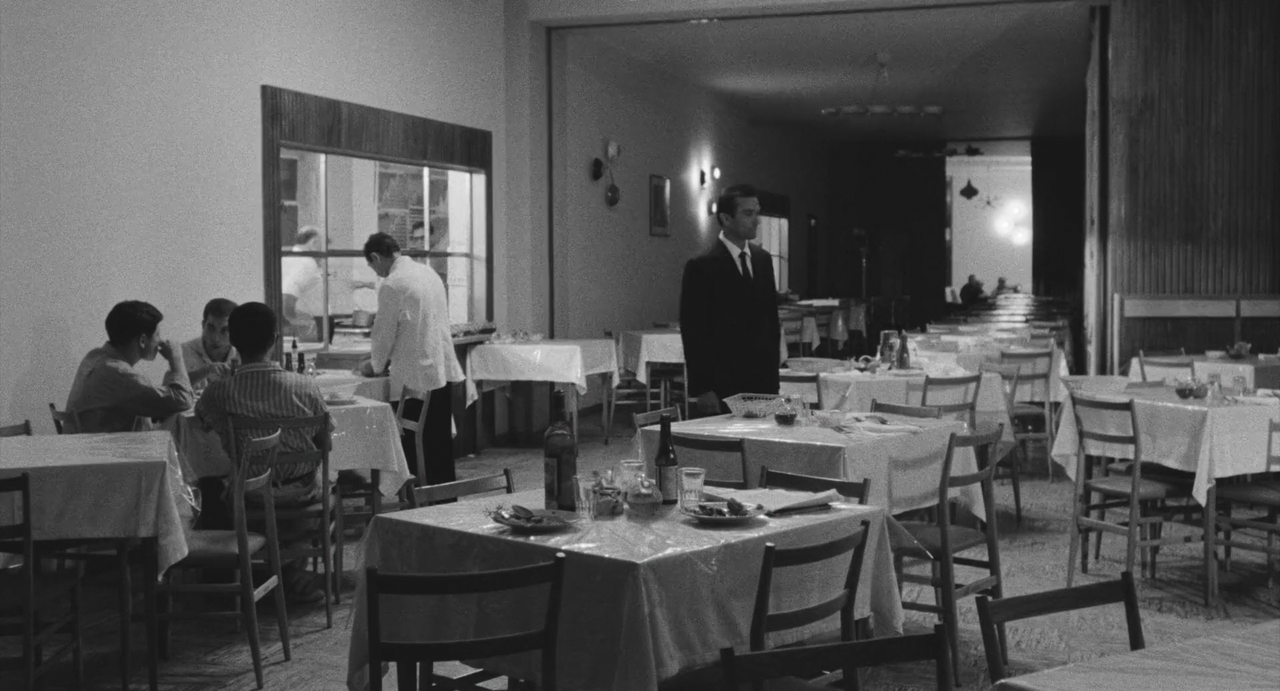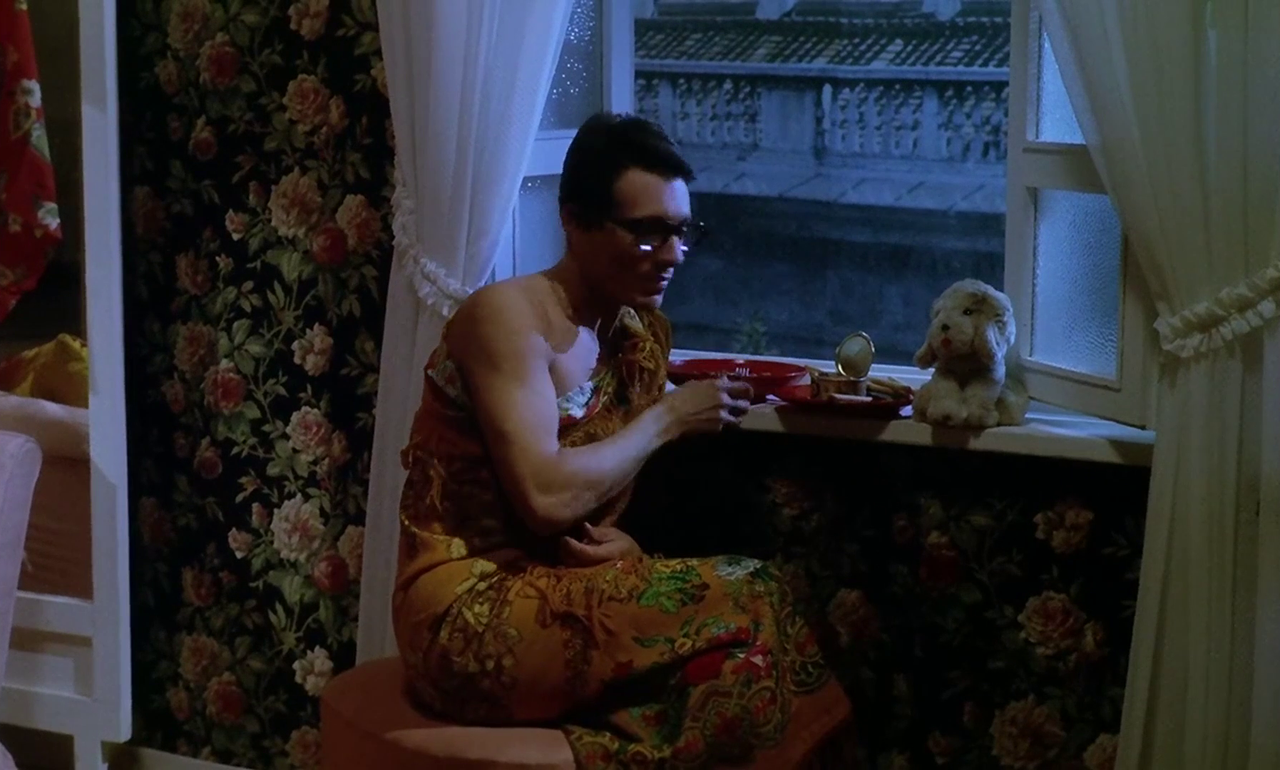“Trouble is, she likes everything. She's always happy. She desires nothing, envies no one, is curious about nothing. You can't surprise her. She doesn't notice the humiliations, though they happen to her every day. It all rolls off her back like some waterproof material. Zero ambition. No moral code. Not even a whore's love of money.”Io la conoscevo bene [I Knew Her Well] (Antonio Pietrangeli, 1965)
Apr
2
cocktails
.png)
A lone Roberto (Enrico Maria Salerno) at a lively cocktail party in Rome's hypermodern EUR district. DP: Armando Nannuzzi.
– the writer
Italy
Max et les ferrailleurs [Max and the Junkmen] (Claude Sautet, 1971)
Mar
16

Lily (Schneider) and Max (Piccoli) at a small table decked with good food, good wine, and quite a few wads of cash. DP: René Mathelin.
“I'm young, hot and pissed off!”Avere vent'anni [To Be Twenty] (Fernando Di Leo, 1978)
Mar
9
sandwiches

Lia (Gloria Guida), one of the young, hot and pissed off 20-somethings, enjoys a sandwich with her espadrilles resting on a small restaurant table. Just visible in the background are multiple men on their lunchbreak. DP: Roberto Gerardi.
– Tina
“If an old man can't even have a glass of wine, what's left to live for?”I fidanzati [The Fiancés] (Ermanno Olmi, 1963)
Feb
29
leftovers

Giovanni (Carlo Cabrini) in a restaurant. It's near closing time. Cooks scape the pans. DP: Lamberto Caimi.
“Father, we just ate!”El verdugo [The Executioner] (Luis García Berlanga, 1963)
Jan
31
stale bread

A closeup of man's hands crumbling bread over a small bowl placed next to a newspaper with keys on top of it. The man has a wool blanket over his shoulders. DP: Tonino Delli Colli.
Les yeux cernés [Marked Eyes] (Robert Hossein, 1964)
Jan
11
baguette

A young woman with big eyes and a dark bob (Marie-France Pisier) picks crumbs out of a fresh baguette. She's somewhere in a dreary small town. The snow's almost gone. DP: Jean Boffety.
A cavallo della tigre [On the Tiger's Back / Jail Break] (Luigi Comencini, 1961)
Jan
6

Two men in a doorway with a stunned look on their faces and their mouths stuffed with food. DP: Aldo Scavarda.
“The first section's dead. There's no one left. We lost contact with the second. The third is reorganizing. All that's left is the fourth. It's enough to start over with.”La battaglia di Algeri [The Battle of Algiers] (Gillo Pontecorvo, 1966)
Dec
18
Arabic Language Day

Petit Omar (Mohamed Ben Kassen) reading out a letter to Ali La Pointe (Brahim Hadjadj) in the قصبة, (Cashbah). If it were not for the leads' jeans and sneakers, this scene could be in any century. DP: Marcello Gatti.
Speak an Arabic language on UN Arabic Language Day
“Feelings unspoken are unforgettable.”Nostalghia [Nostalgia] (Andrei Tarkovsky, 1983)
Dec
10
Worldwide Candle Lighting Day


Hands shield something on stone steps. In the next shot, with the hands withdrawn, we see a small, lit candle. DP: Giuseppe Lanci.
Lit a candle on Worldwide Candle Lighting Day (note: the link contains references of child death).
– Andrei Gorchakov
L'udienza [The Audience] (Marco Ferreri, 1972)
Nov
14

Amedeo (Enzo Jannacci), a young man with heavy rimmed glasses wrapped in heavy, flowery drapes as if it's a toga, eating late at night. There's an opened can on one of his plates. A sad looking stuffed toy dog hangs out. DP: Mario Vulpiani.